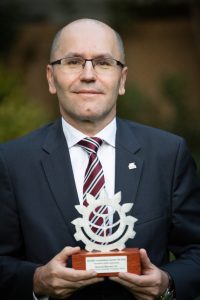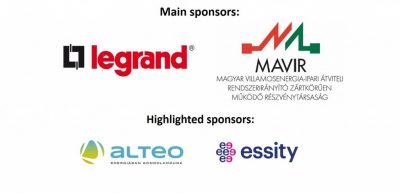Businesses for Race to Zero:
achieving the net zero 2050 target
CEOs and Sustainability Managers, join us on 3 December
at 2pm CET on MS Teams
for an opportunity to hear from Race to Zero policy and business experts and to exchange on best practices for achieving your business’ 2050 net zero goals.
Participation is free of charge, but registration is required. Please contact: ivett.takacs@bcsdh.hu
The Race to Zero is the UN-led campaign for a zero-carbon world. 1,128 businesses including the likes of Facebook, Tesco, LafargeHolcim and Magyar Telekom, and 45 of the biggest investors have joined the global Race to Zero campaign, along with over 450 cities and 550 universities. Businesses of all sizes and across all sectors have a clear role to play in climate action, in line with the Paris Agreement and in the lead-up to the COP26 in Glasgow in November 2021.
Over the coming years, every sector in every market will be transformed as the transition to a low-carbon economy is underway. Committing to the Race to Zero goals of net zero carbon emissions by 2050 is also taking the steps necessary to protect and grow your business by reducing costs, by enhancing access to investor capital, by staying ahead of policies and regulations to limit GHG emissions, by increasing your business’ preparedness to external shocks, and by leading on tomorrow’s innovation and transformation.
For more information on the Race to Zero campaign prior to the event, please turn to the campaign’s global website, which provides information on the paths available for joining the campaign, including the Science Based Targets initiative, and the SME Climate Hub.
Agenda:
| 14.00 | Opening remarks by British Ambassador Paul FOX and Ambassador of Italy Massimo Rustico |
| 14.05 | Opening remarks by Péter KADERJÁK, Minister of State for Energy and Climate Policy, Ministry for Innovation and Technology |
| 14.10 | Jennifer AUSTIN, Director of Policy and Strategy, UK COP26 High Level Climate Action’s Office · Race to Zero: a global overview in the run up to COP26 |
| 14.25 | Kaya Axelsson, Net Zero Policy Engagement Fellow, Oxford University Smith School of Enterprise and the Environment and the Environmental Change Institute · Defining and achieving net zero: the practical resources |
| 14.40
| Business voices on the Race to Zero: Translating global pledges into local action. Speakers: · Audi Hungaria, Péter ÉLIÁS, Head of Environmental Management · Budapest Airport, Dr. Rolf SCHNITZLER, CEO · Deloitte Hungary, Alastair TEARE, Risk Advisory Business Leader · FCA Fiat Chrysler Automobiles, Andrew HIGGINS, Regional Managing Director CEE · ING Wholesale Banking Hungary, Tibor BODOR, CEO · Legrand Hungary, László KÁROLYI, CEO · Magyar Telekom, Zsuzsanna FRIEDL, Chief People Officer · Tesco Hungary, Zsolt PÁRTOS, Managing Director |
| 15.05 | Discussion and exchange of expertise |
| 15:20 | Ambassadors’ closing message (pre-recorded video) |
| 15.25 | Closing remarks: Irén MÁRTA, Managing Director, BCSDH |
The language of the forum is English, without interpetation.


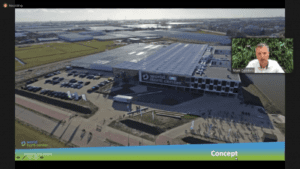

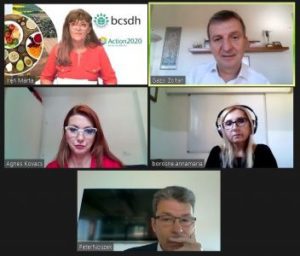
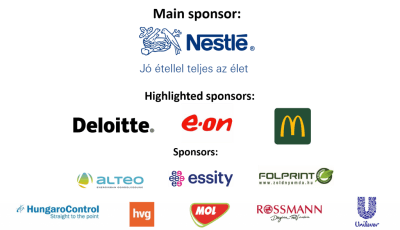


 The “Subsidies provided by Coca-Cola Hungary in the first phase of the COVID-19 pandemic” program earned the award for its extremely quick response to the pandemic. During the program, significant financial and professional support was provided to the Red Cross. Business goals were subordinated to a nobler goal, while employees were also involved in volunteering tasks. In addition to helping inform society, the mobilization program also helped those in need. The award was received by Péter Kerekes, Managing Director of Coca-Cola Hungary, and László Békefi, Managing Director of Coca-Cola HBC Magyarország Kft.
The “Subsidies provided by Coca-Cola Hungary in the first phase of the COVID-19 pandemic” program earned the award for its extremely quick response to the pandemic. During the program, significant financial and professional support was provided to the Red Cross. Business goals were subordinated to a nobler goal, while employees were also involved in volunteering tasks. In addition to helping inform society, the mobilization program also helped those in need. The award was received by Péter Kerekes, Managing Director of Coca-Cola Hungary, and László Békefi, Managing Director of Coca-Cola HBC Magyarország Kft. Generali’s “Life-long partnership during a pandemic” program really attracted the jury’s attention. The program is a rapid and complex response that has enabled corporate operations to become COVID-resistant, while clearly demonstrating the company’s commitment to internal and external partners. Generali offers a number of material and operational solutions that make life easier for both partners and customers. The award was received by Mihály Erdős, CEO of Generali Biztosító Zrt.
Generali’s “Life-long partnership during a pandemic” program really attracted the jury’s attention. The program is a rapid and complex response that has enabled corporate operations to become COVID-resistant, while clearly demonstrating the company’s commitment to internal and external partners. Generali offers a number of material and operational solutions that make life easier for both partners and customers. The award was received by Mihály Erdős, CEO of Generali Biztosító Zrt. Grundfos’ “Safety and stability in the time of a pandemic” earned the Social Responsibility Award. The complexity of their approach is clearly reflected in the program, and it is evident that the spirit of partnership is of paramount importance, with a focus on stakeholders. The health of employees is a priority, and Grundfos has also provided financial support to local hospitals. The award was received by Olivér Szundy, Managing Directorof Grundfos Magyarország Kft.
Grundfos’ “Safety and stability in the time of a pandemic” earned the Social Responsibility Award. The complexity of their approach is clearly reflected in the program, and it is evident that the spirit of partnership is of paramount importance, with a focus on stakeholders. The health of employees is a priority, and Grundfos has also provided financial support to local hospitals. The award was received by Olivér Szundy, Managing Directorof Grundfos Magyarország Kft.


